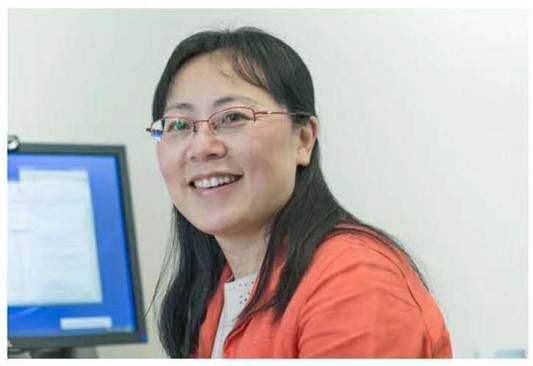Recently, the Royal Society has announced election of 62 new fellows 2020. Professor Xin Lu, a class ‘78 alumna of the SCU Biology Department, is now a Fellow of the Royal Society.

Xin Lu graduated from the SCU Biology Department with a BS degree in 1982. In the same year, she was admitted to Peking Union Medical College to study under the guidance of Min Wu, a famous geneticist and academician of the Chinese Academy of Sciences, and obtained her master's degree in science in 1985.
In 1987, she went to the Imperial Institute to study and earned a Ph.D. in 1991. In the same year, she joined Sir David Lane’s laboratory, (Sir David Lane, one of the discoverers of anti-tumor protein p53) and conducted her postdoctoral research. In 1993, she was employed in St. Mary's branch and the Imperial College of Ludwig Instituter for Cancer Research. In 2000, she became the first Chinese female professor in the UK. In 2004, she was appointed the director of Ludwig Institute for Cancer Research (UCL branch) and was the first ethnic Chinese to hold such a position in the UK. In addition to her Ludwig post, she is a professor in the Nuffield Department of Medicine at the University of Oxford. Lu is also a Fellow of the Academy of Medical Sciences (since 2013), a Fellow by election of the Royal College of Pathologists (since 2011) and a member of the European Molecular Biology Organization (since 2012).
Professor Xin Lu is a well-known cancer biologist. She has madesignificant contributions to the cell biology of cancer, particularly her work on the regulation of p53, a tumor suppressor protein whose inactivation or mutation contributes to the progression of a wide variety of tumor types. Early in her career, Lu explored how p53 induces cell suicide, or apoptosis, in response to the expression of cancer-driving genes and events such as DNA damage. That work led to the discovery by Lu’s group of the ASPP family of proteins, which control p53 activity and thus play a critical role in cancer biology. Speaking of her election, Xin Lu indicated: “ As a person who could hardly speak English at the beginning of my scientific career, I am very honored to be named a Fellow of the Royal Society. This is not only a big recognition of the great progress made in the field of tumor research, but also an affirmation of the important role played by the Chinese in the forefront of scientific research in the world. I am grateful to my alma mater, Sichuan University, for her attention to my growth. I would not have made such achievements without the training at my alma mater. I hope that teachers and students of Sichuan University will have the opportunity to exchange and study at Ludwig Institute for Cancer Research, Oxford University.”
Founded in 1660, the Royal Society is a self-governing fellowship of eminent scientists, engineers and technologists in the UK and the Commonwealth.Past Fellows and Foreign Members include Isaac Newton, Charles Darwin, Albert Einstein, Dorothy Hodgkin and Stephen Hawking.
